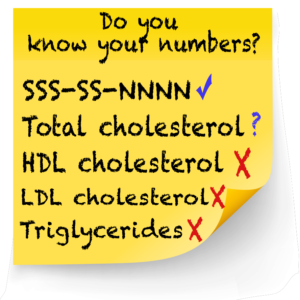Have you ever gotten test results back from your doctor and all he tells you is that it’s normal? Of course you’re going to be happy to hear the good news, but what exactly does ‘normal’ mean for you? The desirable range for total cholesterol is anything less than 200 mg/dl. So normal could be 50, 150 or 199. Yes, 199 is normal, but has your cholesterol continued to rise over the years?
Even if your cholesterol level is 199 the first time it’s ever tested, walking away armed only knowing that it’s normal could put you at a disadvantage. The key to preventing most forms of heart disease is to know what cause it, and implementing a strategy to defeat it.
Total cholesterol is made up of three main parts: HDL (good cholesterol), LDL (bad cholesterol) and triglycerides. Ideally, your HDL should be high, and your LDL and triglycerides should be low. High LDL and high triglyceride levels could be red flags for your heart. So how do you know if you’re hitting those goals if all you know is your total?
What Is Cholesterol?
Cholesterol is a waxy substance found in many foods, as well as in our bodies[1]. Although cholesterol usually gets a bad wrap, our bodies actually need cholesterol for cell membrane and key hormone production. Cholesterol is also plays a role in digesting and absorbing fat, as well as absorbing vitamin D[2].
Because the body relies on cholesterol, the liver produces about 75% of the cholesterol in our bodies. [3] The other 25% of the cholesterol comes from the foods we eat.
If Cholesterol is Good, How Can It Lead to Heart Disease?
Too much cholesterol can cause a build-up in the walls of the arteries, which can restrict or completely block blood flow. This can definitely cause a domino effect. Restricted blood flow also means less oxygen being carried throughout the body, including to your heart. Inadequate blood and oxygen to your heart could cause chest pains. No blood or oxygen to your heart leads to a heart attack.
High Cholesterol and Cardiovascular Disease
While higher cholesterol levels can lead to an increased risk of cardiovascular disease, cholesterol alone isn’t the only factor. Your health care professional will considered other factors in order to get a complete picture of your risk. Some additional factors include:
- Family history – family members who suffered a heart attack or stroke before 55 years old
- Sex – Men run a higher risk than women
- Ethnicity – Certain races are inherently at higher risk than others
- Diabetes – Type 2 diabetes increases the risk
- High blood pressure – Places extra strain on the blood vessels and heart
- Smoking – Cigarette smoking increases the risk
Speaking with your health care professional is always best. If you’d like to get an idea of your cardiovascular risk now, check out the American Heart Association’s Check. Change. Control. Calculator. https://ccccalculator.ccctracker.com/
I’ve Made Several Lifestyle Changes, But My Cholesterol is Still High
This is a very unfortunate situation many people face. If you haven’t already, you should strongly consider checking with a medical professional. Your doctor will have information on steps to take to get your cholesterol under control, which may include prescribing a medication called a statin
Summing it up:
 While having normal cholesterol levels are good, there’s no substitute for knowing your numbers. Make sure you get the following individual numbers from your health care professional:
While having normal cholesterol levels are good, there’s no substitute for knowing your numbers. Make sure you get the following individual numbers from your health care professional:
- HDL (good cholesterol)
- LDL (bad cholesterol)
- Triglycerides
- Total cholesterol
Several factors can affect your cholesterol level. High cholesterol levels, along with other factors, can increase your risk of cardiovascular disease. Understand these factors and make lifestyle changes to reduce the likelihood of a cardiac event.
Be informed. Be intentional. Be in good health.
References:
[1] Gordon, B. (n.d.). What is Cholesterol? Retrieved February 12, 2020, from https://www.eatright.org/health/wellness/heart-and-cardiovascular-health/what-is-cholesterol
[2] Harvard Health Publishing. (n.d.). Cholesterol. Retrieved February 12, 2020, from https://www.health.harvard.edu/topics/cholesterol
[3] Cholesterol Overview: LDL, HDL, Triglycerides, What Cholesterol Levels Mean. (2018, March 6). Retrieved February 3, 2020, from https://www.webmd.com/cholesterol-management/ss/slideshow-cholesterol-overview



